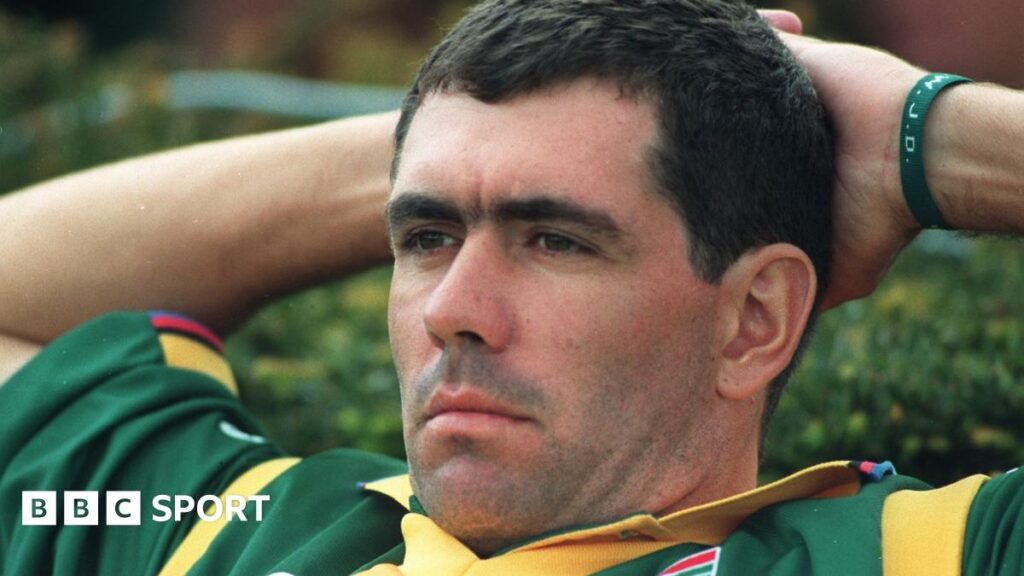When Delhi police released transcripts of recorded conversations between Cronje and Indian bookmaker Sanjeev Chawlar in early April 2000 it was met with denials from the man himself and South African cricket officials, and wider disbelief.
Cronje was initially identified in the calls by a quirk of fate.
Pradeep Srivastava, the deputy commissioner of Delhi’s crime department, had been working on extortion cases and taken some tapes home with him.
One of Srivastava’s children had listened to a wire-tap cassette, left in the home hi-fi system, and asked his father why he had a recording of Cronje’s voice.
Srivastava’s son had watched a post-match interview with Cronje on Indian television the previous day and recognised his voice.
With the net closing, Cronje came clean.
At 3am on 11 April 2000 he confessed to Rory Steyn, a South African security consultant working for the Australia cricket team, in a Durban hotel where the pair were staying.
“I walked into his suite and all the lights were on,” Steyn remembered.
“He had a handwritten document and said ‘you may have guessed, but some of the stuff that is being said against me is actually true’.”
A month later, Cronje attended the King Commission where he was offered immunity from prosecution in exchange for full disclosure.
During three days of cross examinations, broadcast on television and radio, which gripped South Africa and the cricket world, Cronje gave his side of the story.
Or at least some of it, given the input of his own lawyers.
He admitted to taking large sums of money, as well as accepting a leather jacket for his wife Bertha, in exchange for giving information to bookmakers and asking his team-mates to play badly.
But he claimed South Africa had never “thrown” or “fixed” a match under his captaincy.
“To my wife, family, and team-mates, in particular, I apologise,” he said during a rather robotic reading of an opening statement lasting 45 minutes.
Cronje was banned from cricket for life, unsuccessfully challenging the suspension.
Further investigations into the truth of what Cronje said during the inquiry were halted when he died in a plane crash in June 2002.
Cronje had boarded a small cargo aircraft in Johannesburg which went down in mountainous terrain amid poor weather conditions while attempting to land at George airport.
Cronje, then working as an account manager for a manufacturer of heavy-duty construction equipment, was flying back to see his wife at their home near Fancourt Estate, a luxury golf resort.
His death was put down to weather, pilot error and possible instrument failure, but nevertheless prompted conspiracy theories.
Former Nottinghamshire captain Clive Rice, who played three ODIs for South Africa, called Cronje’s death “very fishy” and linked it to the subsequent death of Bob Woolmer, the former South Africa coach who was in charge of Pakistan when he died.
“Certain people needed him [Cronje] out. Whether it was one, two, or 15 people that were going to die it didn’t matter,” said Rice, who passed away in 2015.
“Hansie was the one that was going to have to go and if they could cover it up as a plane crash then that was fine.”
Eerily, Cronje himself had predicted in speeches, and written in a magazine, of the potential to “die in plane crash” because of the “constant travel by air”.
Ed Hawkins, a specialist betting investigative journalist, dismissed the notion that bookmakers were somehow behind the incident.
“I’ve never found any information basically worth my time or effort to launch a full-scale investigation,” Hawkins said.
Steyn, the security consultant called it “ludicrous” to suggest there was a “conspiracy to murder him by bringing the plane down”.


